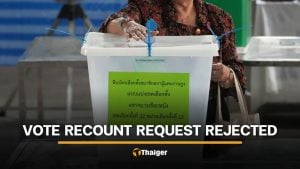MPs demand answers from PM over delayed financial bills

The House Committee on Political Development, Mass Communications, and Public Participation is seeking answers from Prime Minister Srettha Thavisin after his delayed endorsement of 16 financial legislation bills.
The committee, led by People’s Party (PP) list-MP Parit Wacharasindhu, has called on the Thai premier, his Secretary-General Prommin Lertsuridej, and Acting Pol. Sub. Lt. Arphat Sukanan, the House of Representatives Secretary-General, to a meeting to discuss the issue.
Parit stated that the primary concern is understanding the criteria used by the House speaker to determine whether a proposed bill pertains to finance. They also intend to review the timeline for decision-making.
To date, 65 financial bills have been sent to the prime minister for consideration. Of these, 56 have been reviewed, with 40 approved and 16 rejected. Among the rejected drafts were eight proposed by the public, such as the National Arts and Culture Council Bill, the Medical Welfare Bill for monthly pensioners, and the War Veterans Organisation Bill.
The other eight were proposed by opposition parties and included the establishment of a provincial court in the Pua District of Nan, a new Islamic Law on Family and Inheritance, and a new Animal Cruelty Prevention and Welfare Bill.
Parit remarked that several financial bills took the 62 year old prime minister more than six months to review. The committee seeks an explanation from the Thai premier’s representative to address the delays and find a collaborative solution.
“According to the constitution, the premier has the authority to evaluate whether a bill would be a financial burden on the government before sending it to Parliament.”
He questioned the criteria used for rejecting bills that do not significantly impact the budget.
“I wondered if a draft doesn’t significantly impact the budget, what other criteria he uses to reject it?”
He also emphasised that prolonged review times by the premier could impede legislative progress.
A source mentioned that one reason for the delay is the special authority granted to the prime minister by law, which mandates that a finance bill requires the prime minister’s approval to be proposed, reported Bangkok Post.
Latest Thailand News
Follow The Thaiger on Google News:

























